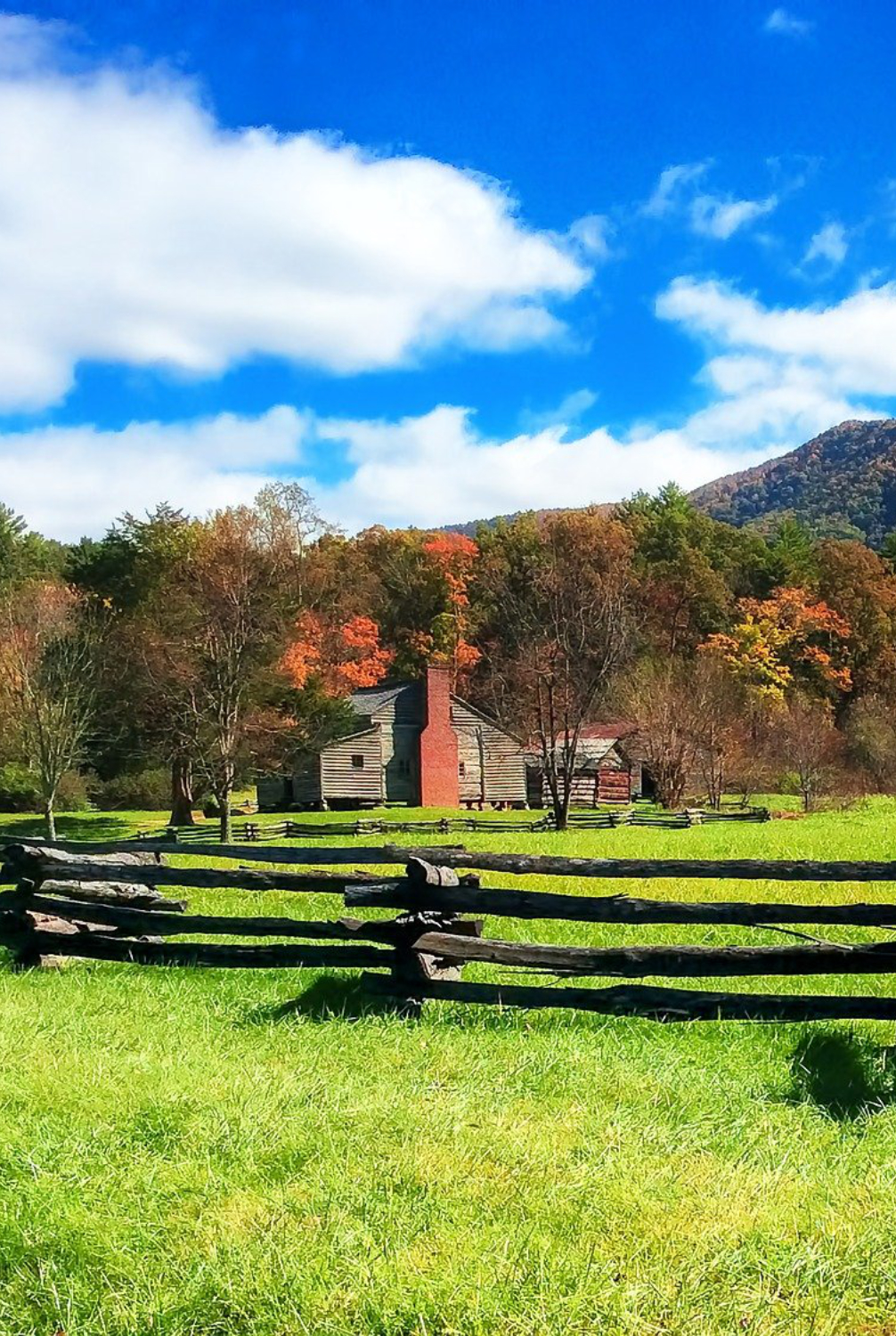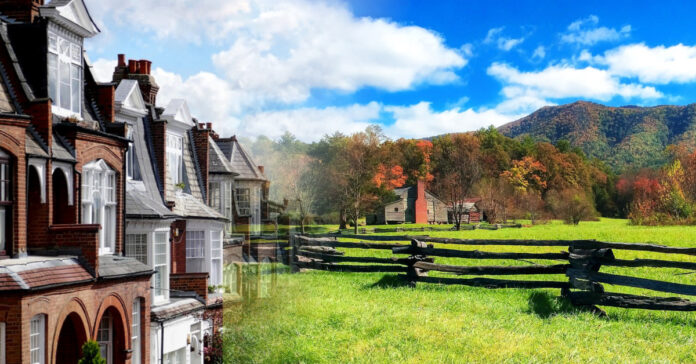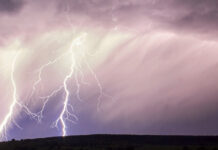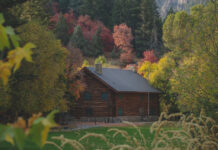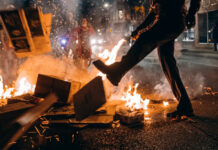When I started prepping, I was an urban prepper. I lived on the sixth floor of an apartment building in New York City – about as urban as you can get.
More than 25 years later, our prepper property is outside a small village on a dead-end road, halfway up a mountain.
There have been four other houses in between the apartment and the prepper property, each one more rural and less urban than the one before. While I have been a prepper cities and in suburbs, and believe it is far better than being unprepared, it is far from ideal.
The Challenges of Urban Prepping
Much of our prepping focused on how to get out of town, where to go, and when to leave. Our preps had to fit in our vehicles, and our vehicle has to be large enough to hold us, and tough enough to get there, even if we had to go off road.
Then there’s the issue of storage. Apartments and townhomes don’t have much of it. How will you fit a year’s worth of food? But wait, why have a year’s worth of food if you are going to bug out? You’ll never fit that much in your vehicle. Same with guns and ammo. What good is having 20,000 rounds of ammo if you can only fit 4,000 in your car?
We ended up having half our food and ammo cached at our friend’s 17-acre farm. Some of the remainder was stashed at a family property that we could use as a retreat, but was not as rural as we would have liked. Then the balance – including most of our canned food and other goods that we needed to rotate – were in our everyday home, as was the generator, stored gasoline, and most of our guns. Later, we put many of our preps in a 15 x 10-foot storage unit.
We found urban prepping doable, but difficult.
The Benefits of Urban Prepping
I was an urban prepper for much the same reason most people are: The best jobs were in the city, at least in my chose field. At one house, I parked at the station and took the train to work every day. At another, I had to drive 45 minutes each way, assuming there wasn’t an accident. It was worth it to be safely outside the city center where much of the violence and unrest is and where the population density is so high that your chance of survival is low if resources become scarce.
On the plus side, living in an urban area also meant access to great restaurants, farmers markets, nearby teaching hospitals, museums to take the kids to, concerts to attend, professional sports teams to cheer for, and a wealth of extracurricular activities for the kids, like karate, dance, and youth sport leagues. Living in or near a city was fun, but it was also expensive. Taxes were high. Gasoline was expensive. Housing was pricey.
At my last job, I was able to work at home every Wednesday. I was so productive! Now, thanks to COVID-19, many people are working at home every day. That makes living in the city less mandatory than it once was.
My advice to urban preppers: Take advantage of this work-at-home boom while it lasts and move to the exburbs, or a small town, or as far from the city as you can get without losing your high speed Internet connection.
The Advantage of Living at Your Retreat
By living in a safe, secure, defensible location, you greatly minimize the need to bug out, and all your supplies are on hand. We don’t have to figure out what to pack or where to go.
About the only reason we would leave our prepper property would be due to a forest fire, and I’m not even sure if I would leave then. I might send my wife to safety and stay to fight the fire. Our house is in a clearing with no nearby trees and minimal brush. It has a metal roof and there are streams on three sides. Our gravity-fed water system means we would have water pressure even if the power was out. In short, I think it is unlikely to fall victim to a wild fire.
In our location, we have wood stoves for heat and cooking. We have available natural water sources. And in a SHTF situation, we not only have our stored supplies, but the ability to raise, hunt, and gather food. Most city houses and apartments have no fireplaces or gas logs, little or no fresh water resources, and while you can garden in your back yard, about the only thing to hunt are rats and other vermin.

In our location, we have wood stoves for heat and cooking. We have available natural water sources. And in a SHTF situation, we not only have our stored supplies, but the ability to raise, hunt, and gather food. Most city houses and apartments have no fireplaces or gas logs, little or no fresh water resources, and while you can garden in your back yard, about the only thing to hunt are rats and other vermin.
Lower Population Density
In the immediate aftermath of a large-scale disaster, other people are going to be one of the biggest potential threats you could face. As people get hungry, they are going to be stealing and fighting each other for food. Same thing if they are thirsty. If there is no rule of law, then it becomes survival of the fittest, and the city is a jungle. Out here in the country, there will be fewer gangs, less fighting and more people will have water and food. If things take a turn for the worse, we’ll be better able to see them coming. And when you have four neighbors, it’s much easier to help each other out then when you have 400.
We also find the lack of neighbors also gives you greater freedom. Freedom from nosy neighbors. Freedom from constant surveillance cameras, and freedom from car alarms, sirens and other city noise. We also have no pollution, far fewer rude people, and less crime.
Hospitals are further away. It takes fire, police and EMS longer to get to you. The grocery store is further away. Running to the hardware store may be an hour round trip. If you don’t like the waitress at the corner café, there may not be anywhere else to eat. But we find the tradeoffs are worth it.
Plan to head for the Country… Eventually
I’m not saying drop everything and head for the country, but if you are a serious prepper, you should at least make some long range plans to do so at some point in the future. It took me 25 years, but you don’t wait so long.
The most important part of planning is getting buy-in from your spouse. My wife has known for years that I wanted to be on the side of a mountain raising goats. We don’t goats yet, but the important half of that equation is in the works. So make sure your significant other is on board with giving up the restaurants, the theater and the social scene in return for feeding the chickens and digging in the dirt.
The next thing you need to determine is where you want to go. In part, this will be determined by restrictions, places you can’t go. For example, we decided we didn’t want to move to Montana or Idaho because the winters are so long. You might not want to be too many hours way from the rest of your family, of you might need to be able to get to an international airport quickly. Everyone has different needs, and that’s OK.
You also have to think of your kids. Sure, they’ll make friends wherever you are, but you need to be able to get them to a school or homeschool them. If one of your kids has the potential to be a champion ice skater, gymnast or basketball player, they might not be able to realize their full potential in the middle of nowhere. So weigh your priorities carefully and keep in mind that moving in stages, like we did, might be a good option.
Consider Homesteading
We live in the middle of a forest on the side of a mountain, but if I was 20 years younger, we’d be homesteaders, raising livestock with a huge garden instead of some raised beds. Homesteading gives you a great deal of self-reliance, which preppers really need. You have food security as well as a way to generate money by selling your excess. Homesteading is hard work, but it can be fulfilling and educational. But if you have young children or start a family on the homestead, you can be positive they will never ask, “What are all those dogs doing over there?” the first time they saw a herd of cows grazing in a distant pasture. (True story. This was said by a four year old who had never been outside the city.)
Urban prepping is something many preppers have had to do, especially at the start of their prepping journey. Just remember that the journey doesn’t have to end there.
If you enjoyed this article,we recommend Our Prepper Property Search which details what we were looking for when we went shopping for or perfect prepper property.
